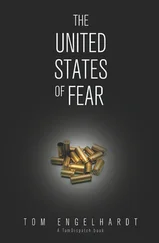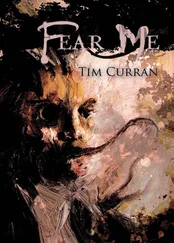Where once our house was packed every night, with almost no effort, now it required a stream of novelties to keep us between two-thirds and three-quarters filled on the weekends. I don’t know that any other troupe was doing appreciably better, but the competition was spurring everyone to greater lengths. The first element I added beyond our core ensemble performance was a pastoral scene in which Powell and Burke portrayed Little Eva and Uncle Tom, in a tableau which I adapted from Uncle Tom’s Cabin . Dramatized performances of passages from this book were almost a necessity at that time, and I worked up a scene in which pathos was ascendant. It ended with Burke on one knee singing “Ave Maria.” Really, the effect was uncanny.
The new set pieces and routines demanded sufficient attention that we hired a costumer half-time, named Rose, to help us keep up with the various changes. I suppose this is the place to introduce her, but I hardly know how to begin.
She appeared at Barton’s around the time I speak of and offered her services as a seamstress. She was tall, even in the flat shoes she wore, and her brown hair was cut short, so that it nearly resembled a boy’s. Her eyes were large and brown. Her stated experience seemed in order with our needs, although I would have hired her if her experience had consisted of sweeping out coal dust in a bordello. I installed her in a large storage room that I cleared out immediately, and she was at work within a week.
I conferred with her on every detail of costuming. Every day she herself looked different, and yet every day her appearance bore the unmistakable impress of who she was. No one else dressed like her, walked like her. One day she wore men’s trousers and a man’s shirt, and she never looked lovelier. She called me “Mister James,” with a little glint in her eye, for the first week, until I insisted upon her dropping the “mister.” Her voice had a teasing lilt to it, but never cruel, and her natural state was an unhurried grace, as if she were the exiled queen of some unknown country.
At the sewing table she was as serious as a surgeon, and a wizard at finding ways to use unanticipated materials. I might stop in to find that she had managed to incorporate thin strips of foil into a set of pantaloons (for a Shakespearean parody) so as to catch glints of light; another time she created a pharaoh’s headdress out of a frame of baling wire, covered with dyed muslin. She seemed utterly self-contained when she practiced her craft. I have always been susceptible to this quality in people, as I lack it myself. Part of me is always standing outside, weighing the costs.
We flirted good-naturedly — she flirted good-naturedly with everyone. On the days when her hours at the worktable overlapped with the troupe’s rehearsals, she joined easily in the give-and-take with the fellows. Dan Powell might say, “Here is our beautiful flower! Remove your weeds so that we can enjoy your beauty!”
“You’d cut your fingers on my thorns, Dan,” she might reply, with a smile.
Fitting Burke into an evening gown for some forgotten mock-opera sequence, she might smile to herself at a few words of praise from his middle-aged lips, respond, “I’m very flattered,” without looking up, and thereby draw her boundaries in the gentlest manner. Only Eagan refrained from joining in the general teasing, and this should have told me what I needed to know.
One afternoon, a month or so after she arrived, I asked if she might join me for a walk and lunch at McKenna’s place on Third Street. It was one of the few public houses that allowed women to come and go, catering, as it did, to travelers from the packet boats. She put some things in order at her worktable, and we walked the few blocks to the tavern. I was a bit on edge, as if I were about to submit to an important audition. I had to remind myself that I was the leader of a famous troupe, and not a schoolboy. I had had girls before — the circus made that inevitable — but I was unhorsed by Rose.
We took seats at a table by the window. The offerings were listed on a chalkboard on a wall. We read them.
I was tongue-tied at first, but I discoursed on upcoming routines and costumes, fearing all the while that her attention was only polite. In fact it was heroic, as I am sure I was boring her as much as I was boring myself. Somewhat desperately, I offered my anecdote about meeting Mulligan in the circus, his attempt to conscript me as his water boy, and finally she laughed. One wanted to earn those laughs from her. The mood between us warmed a bit. Finally it occurred to me to ask her about herself, and her own history.
It was clear, instantly, that this was a mistake. A pained look, and a retreat — momentary, but final.
“I’m sorry,” I said. “Please, if that was intrusive. .”
She regarded me with the queerest expression, searching my eyes as if to discover any ill intent. I had steered us onto a submerged reef, and I was at a loss for a correction.
At length she said, “You know, James, that I am spoken for.”
“No,” I said. “I did not know. I’m sorry if I made you uncomfortable. .”
“No, you didn’t,” she said. “You didn’t.” She looked down at the table, where she worried a crumb with a lovely finger. “The world has not used me kindly.”
If she had more to tell me, she kept it to herself. Behind her beautiful façade, apparently, lay some landscape of pain she chose to keep private. She trusted me sufficiently to let me know that it existed, yet I also understood that our relations would remain on a professional footing thenceforth. I wondered who the fortunate fellow was who had spoken for her, and how he had earned his position.
The answer arrived one afternoon, perhaps a month later. Dan Powell made some innocuous remark about Rose before a performance, and Eagan shot back, “That’ll be enough of that.” He had, we learned through his remarks here and there, installed her in her own apartment, which he referred to as a “bird’s nest.” A gilded cage was more like it, especially as he had a wife elsewhere. Whom we never saw.
In any case, I had more than enough to preoccupy me then. The fact was that our troupe’s financial situation had become increasingly precarious, and things had approached the point at which our very existence could be in jeopardy if we did not find some way of attracting larger numbers. I kept this from the others to the extent that I could. But no matter how many birdcall impersonators, or jugglers, or Shakespearean parodies, we added, our receipts continued to fall steadily. I walked the streets, my head full of attendance figures and strategies for promotion, possibilities for new sketches, a thousand details, all the while feeling that I was missing something that lacked a name. We needed something to set us apart, again — to reclaim the public’s full attention. I dreamed of Sweeney, of the elusive magic. I kept thinking that we needed something closer to the root of what had started us in the first place, the mystery in the tent, the dark outside, the shadows, the sense of something Other that was invisible by the light of normal daytime. And it was at that time that I first saw Henry Sims on the street corner.
He disappeared, that afternoon, as described, but he lodged in my mind. In those few minutes he summoned up for me the same sense of joy mixed with pathos, of humor, and of possibility, that I had felt seeing Sweeney in the tent. Yet here was no impersonation, no masquerade — he was the thing itself. I did not know his name then, nor anything about him. But it struck me that if there were some way of presenting him in the show, he might add exactly the element that was being diluted. The possibility of a kind of fruitful competition between him and Mulligan, orchestrated for maximum effect, offered itself. My imagining collected around him — a solo performer, as Sweeney had been, yet far more skilled.
Читать дальше










